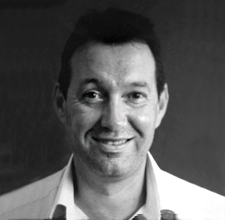Research has long been the focus of higher education institutions. But concerns are growing that schools are not directly involved. Optimus expert Elizabeth Holmes caught up with Mark Healy, deputy head (learning and teaching) and psychology teacher at a Scottish secondary school, to find out his views.
 Mark Healy. Follow Mark on Twitter at: @cijane02
Mark Healy. Follow Mark on Twitter at: @cijane02Defining both a meaning and purpose of education is difficult enough. Add the word 'research' into the mix and we widen the dialogue to capture so many different beliefs, attitudes, and ideological perspectives that reflect what really 'matters' in UK and international education. So how comfortably do the terms 'education' and 'research' sit beside each other? Is it dependent on syntax? For example, does the term 'teacher researchers' sound more abstract and less real than the term 'educational research'? In a world of ‘teachers need to’, why is the concept of a research-aware teaching profession growing in traction and popularity?
The term ‘research’ is hard to pin down, especially given the diverse academic fields and the fact we live in a world of bias and differing views. For example, should we use randomised control trials (RCTs) as a starting point of inquiry in education? And is action research really valid as a way of teachers better understanding their classrooms, schools and contexts? In a nutshell, research is not some kind of GPS that will automatically carry a teaching profession towards a final destination. Indeed a recent report from TNTP (formerly known as The New Teacher Project), 'The Mirage: Confronting the Hard Truth About our Quest for Teacher Development' suggests that a large proportion of teacher professional development is largely a waste of time and money.
There is a place for high quality, external CPD but that's not the sustainable driver nor should it be. ‘External’ must work in tandem with in-house knowledge, skills and experience. This gives staff members the opportunity to marry the ‘outside and inside’ and challenge the restrictive grip of increasing austerity. As unpalatable as the TNTP report may be to digest, it does help illustrate the need to critically engage with research itself as a starting point. A process of criticality and self-evaluation of my practices as a teacher is essential: Not because I am not good, to paraphrase Dylan William, but because I can get better... like anyone in any profession.
It is a key merit of a research-aware profession: it defines what improvement may look like and how I can self-reflect and evaluate my practices to promote change. This comes from my self-motivation to improve as a professional and for the pupils I teach. Moving from being research ‘aware’ to research ‘literate’ helps us to critically evaluate the claims of research: it helps develop a skills base for teachers who are seeking to define and shape ‘teacher improvement.’
We might eventually go beyond the futile and perfunctory culture of top down and imposed performance management targets which do not encourage more esoteric development to occur. We may also become more critical of the pseudoscience that is still being peddled as key ‘scientific literature.’ We might also develop a world view that respects the teaching profession, not as a passive body of teachers but one that engages with reciprocal and appreciation of talents and knowledge between teachers in schools and teachers in higher education. Research narratives should work with inquiry to deepen our introspection and continually questions our understandings and assumptions as professionals. In short, we help both frame and reframe our own tomorrows in ways we want them to look like because the future is really only an illusion we create in the now.
Having trouble accessing the resources above? Why not find out how Optimus supports schools with their CPD provision and request a demo of In-House Training and Knowledge Centre or take a free trial.